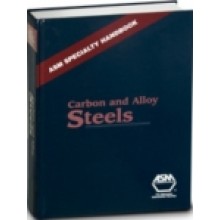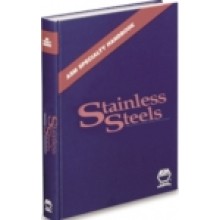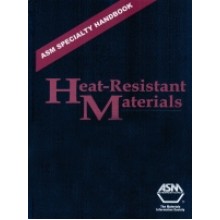ASM Specialty Handbook : Cast Irons
Our Price: $293.25
Discount : 15%
Quantity:
-
Add to Compare
Cast iron offers the design engineer a low-cost, high-strength material that can be easily cast into a wide variety of useful, and sometimes complex, shapes. This handbook from ASM covers the entire spectrum of one of the most widely used and versatile of all metals.
You'll find basic information on metallurgy, solidification characteristics, and properties. Extensive reviews are presented on the low-alloy gray, ductile, compacted graphite, and malleable irons. New and expanded material has been added covering high-alloy white irons used for abrasion resistance, and high-alloy graphitic irons for heat and corrosion resistance.
Also discussed are melting furnaces and foundry practices such as melting, inoculation, alloying, pouring, gating and risering, and molding. Heat treating practices including stress relieving, annealing, normalizing, hardening and tempering, austempering (of ductile irons), and surface-hardening are covered, too. You'll have valuable information on secondary processing like welding, brazing, machining and grinding, and surface engineering. The latest developments in cutting tool materials for difficult-to-machine castings and innovative laser surface treatments are also examined.
You'll learn about routine nondestructive testing to ensure the necessary casting quality, along with failure analysis and metallography. Finally, thorough information and data are presented on physical, fatigue and fracture, and elevated-temperature properties
Preface
Chapter 1 : Introduction to Cast Irons
Chapter 2 : Foundry Practice for Cast Irons
Chapter 3 : Heat Treating of Cast Irons
Chapter 4 : Secondary Processing of Cast Irons
Chapter 5 : Inspection and Analysis of Cast Irons
Chapter 6 : Properties of Cast Irons
Index
Write a review
Your Name:Your Review: Note: HTML is not translated!
Rating: Bad Good
Enter the code in the box below:
Copyright © 2014 Engineering Standards Bureau. All Rights Reserved.
Developed By Zoom Into Web








